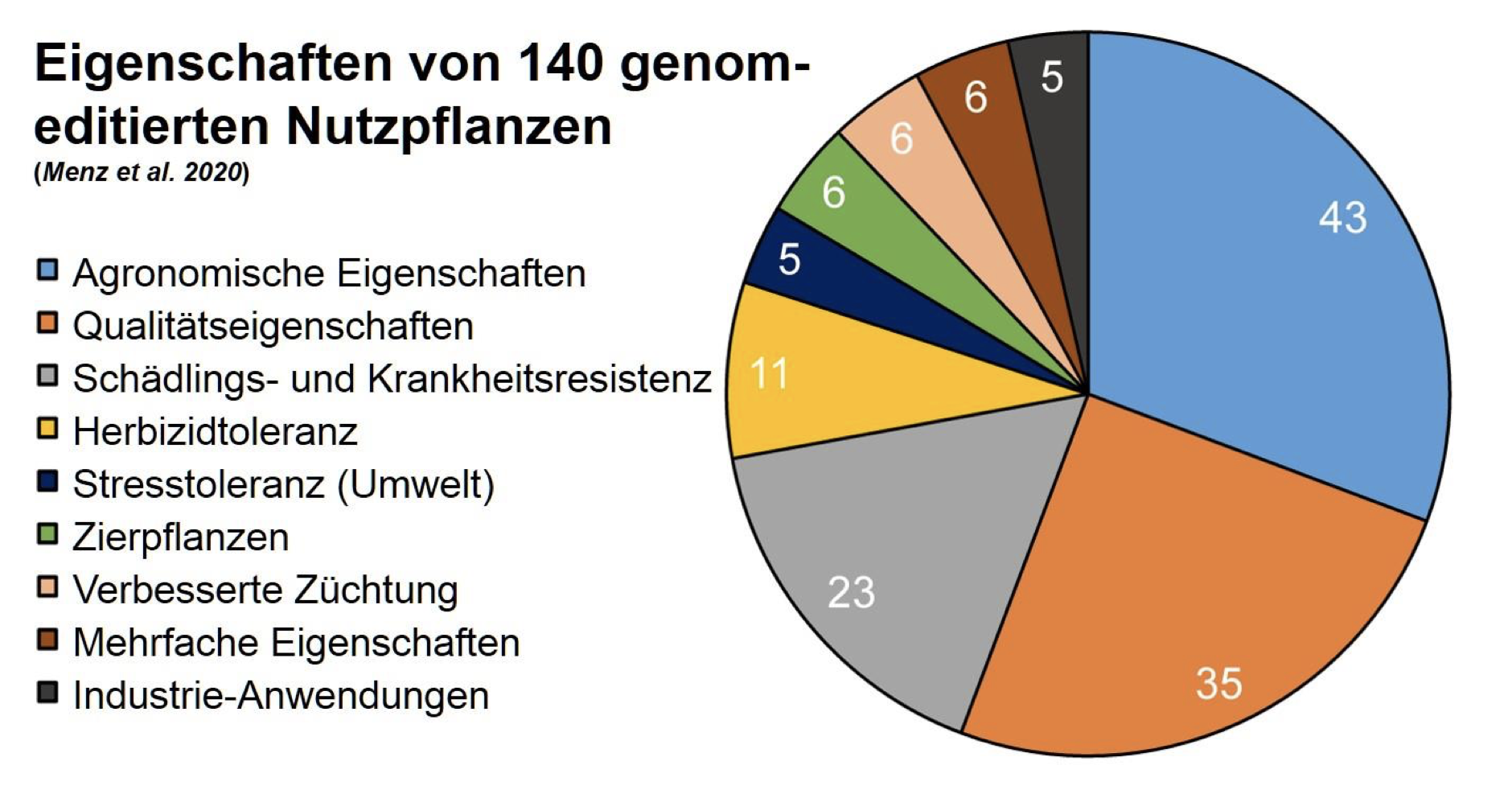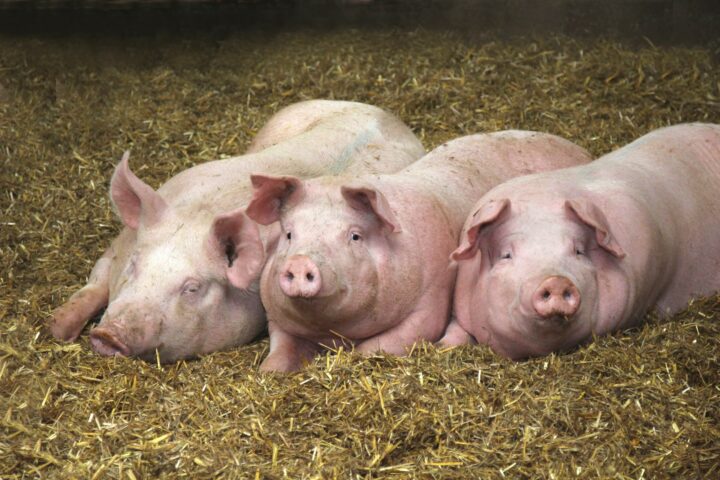
Does the world even need genome-edited plants?
This question is often raised by opponents of modern breeding methods. As is almost always the case: The market provides an answer. And it looks pretty clear.
Thursday, November 11, 2021
Although genome editing with Crispr/Cas or similar methods has been available only for a few years, the number of applications is increasing rapidly. More and more genome-edited plants are currently pushing for approval and thus for the market. For example, a soy plant with a healthier oil composition has been grown in the USA since 2018. Last year the area under cultivation was 40,000 hectares, and the trend is rising. The reason: the benefits for consumers are obvious.
Countless market-oriented products
This genome-edited soy is just the beginning, as an overview in the specialist journal “Frontiers in Plant Science” from 2020 shows: By June 2019, the authors were able to identify a total of 140 genome-edited crops that can be classified as market-oriented. This means that the properties of the plants have been changed in such a way that they have a specific benefit for the producer or the end customer with the aim of launching them onto the market. The improved attributes of the plants range from agronomic properties such as more stable stalks to improved resistance to pests and diseases to greater tolerance to stress such as drought or wet conditions.
Many countries have outdated genetic engineering legislation. These laws are unsuitable for modern breeding methods and focus on transgenic products. However, genome editing has many applications that induce mutations within the species that could also arise spontaneously in nature. Such products are usually only insufficiently covered by the conventional definition of a genetically modified organism. In addition, they usually cannot be distinguished from plants grown using traditional methods. Science has simply overtaken legislation.
Risk-based approval instead of standstill
Some key countries have reacted and are regulating the new breeding methods separately. A risk- and product-based approval practice is often used. Unfortunately, many industrialized nations, especially in Europe, are still resisting such pragmatic, evidence-based legislation - with the corresponding effects on research and development there. In places where approval is handled liberally, such as in the US, one new plant per day is currently submitted to the authorities for approval. In 2020, 17 genome-edited plants were classified and approved as non-genetically modified organisms by the relevant US authorities. Examples include pines with stronger CO2 fixation or maize with improved yield and higher quality. The revolution that genome editing will trigger is only just beginning. It would be good if Switzerland, too, would pave the way for local researchers with liberal legislation so that their innovations can also develop their benefits for Swiss farmers, the Swiss processing industry, consumers and the environment.

Sources
Related articles

Why consumers accept gene-edited foods on their plates
Acceptance of gene-edited foods increases when their tangible benefits are clear to consumers. Studies show that visible advantages for health, the environment or food security are key to public support.

What’s Really in Your Shopping Basket
Genetic engineering in our shopping basket? Yes – and much more often than we think. Whether it’s pasta, bread or vegetables: many of the everyday products we consume come from mutation breeding, which involves altering the genome and is considered safe. It’s high time to debunk the common myths.

Genomic breeding methods are not given a chance to prove themselves
Modern genomic breeding methods are legally classified as genetic engineering – and are therefore still effectively blocked. Yet we have been eating genetically modified plants for decades, just under the label of “classical mutagenesis.” The new, more precise techniques are regulated more strictly than the old ones, even though they are considered safer from a scientific perspective. A contradiction that urgently needs to be corrected. The EU is setting a good example.

No Pig Business: Why Testicle-Free Boars Are a Clear Win for Animal Welfare
New breeding methods are opening up new possibilities in both plant and animal breeding. They allow targeted genetic changes that can make animals more resilient, adaptable, and healthier.

